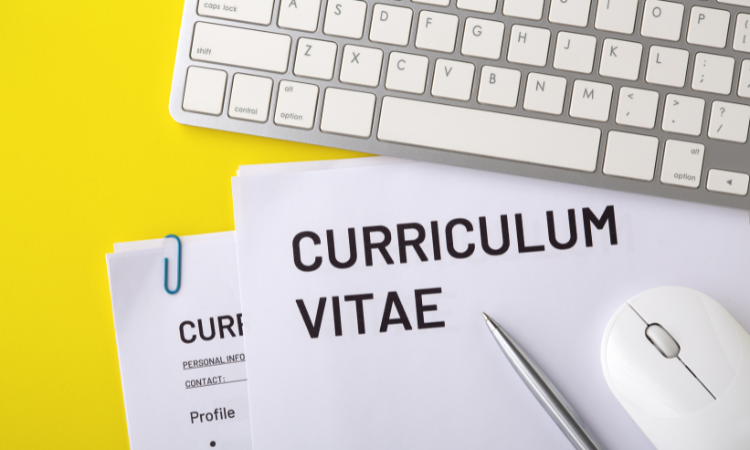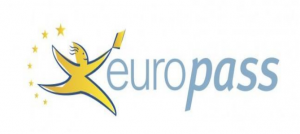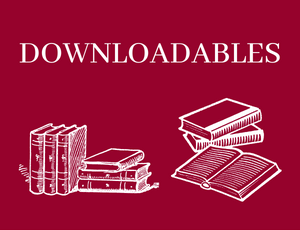EUROPASS/Curriculum, cover letter and job interview

Curriculum
The curriculum is a document that reflects the studies and personal and professional merits of a person.
The resume is usually written to respond to a job advertisement, but it can also be delivered on their own initiative in circumstances in which it is convenient to offer professional services, make yourself known, present projects, get into a circle, get a scholarship, a grant, etc. The resume will be accompanied by a self-introduction letter, or a letter of response to an ad.
Some previous tips prior to preparing the curriculum:
- It is the first business card, please elaborate it carefully.
- A good CV reveals your interest and motivation for the position you are applying for.
- It has to be planned in advance so that, with minor modifications, it can be used for different companies as if it had been done specifically for each one.
- Do not discard any data of interest
Structure of the curriculum. The data and alleged merits can be grouped into the following sections:
- Personal information
- Academic training
- Further training
- Languages
- Professional experience
- Other data of interest
EUROPASS is a personal and coordinated file of five documents, which citizens may be used on a voluntary basis to clearly and easily communicate and present skills, degrees and certifications acquired throughout life throughout Europe (European Union, Area Free Trade Economy, European Economic Area and the Candidate Countries), provided they want to look for work or apply for admission to an educational or training program.

Europass documents. They are the following five:
- Europass Curriculum Vitae
- Europass Language Passport
- Europass Mobility Document
- Europass Title / Certificate Supplement
- Europass Supplement to the Higher Degree
Activity:
Create your personal curriculum and/or an on-line Europass
Cover letter
The cover letter is one of the documents used by the candidate for a certain position of work. The letter accompanies the CV and is normally used in two cases:
- Letter of response to an advertisement. When we have news, by any means, that there is an open selection process.
- Self-introduction letter. It is sent on own initiative, with the intention that they take our application into account in future selection processes.
Observations to take into account when writing the cover letter:
- Do not forget to refer to the fact that you meet the required conditions and that you are the person ideal for the job.
- Make reference to the curriculum vitae, since the objective is that the person who receives the letter feels interest in reading the curriculum and include you in the selection process.
- The wording must be clear, precise and brief; spelling and writing must be taken care at the presentation. It must be neat and clean.
- The paper to be used must be of quality and DIN A-4 size.
- Do not use unusual letters or punctuation marks or strong colours.
- The extension must not exceed one page on one side. Take care of spacing and margins.
- The letter must be typed, unless it is indicated to be handwritten.
Structure of the cover letter
- Personal data of the applicant. They are usually placed in the upper left.
- Addressees details. Name of the person to whom the letter is addressed, with their title (Mr, Mrs, Mr, Mrs, Miss, etc.). The position held, the name of the company must also appear (preferably in capital letters) and the address and town where the company is located. It is usually placed in the upper right part.
- Date. The locality (followed by a comma), the day, the month and the year must be mentioned.
- Greeting. You have to be very careful with the greeting and take into account who it is addressed to. Usually formulas of the type “Dear Mr / Mrs ……” are used.
- Content. The content of the cover letter can be structured as follows:
- First paragraph. If it is about responding to an ad, you must refer to the medium in which we have seen the offer (newspaper, radio, notice board …), and to the position of job to which you aspire. If it is a self-introduction letter it is very important to refer to the company in a way that arouses the interest of the person receiving the letter of presentation.
- Second paragraph. It is the most important; we must highlight the personal and professional aspects highlights of our curriculum related to the position to be filled. Should show interest in working in that company or job.
- Third. The candidate requests to be part of the selection process, in the event that it to be held, or offers to hold a personal interview.
- Farewell. You must take special care and write a simple farewell with a greeting of the type: “Awaiting news from you, receive a cordial greeting.”
- Firm. It must be signed in full with name and surname. It is convenient that the signature is simple, rather sober and does not present too many ornaments.
Activity
Create your cover letter
Job interview
A job interview is a conversation between an interviewer and an interviewee whose purpose is to search for the most suitable person to fill a job. Handling properly a job interview is not easy; it is essential to have prepared for the interview in advance to:
- Show that you have the necessary knowledge to do the job.
- Show that the work can be done.
- Convince the interviewer that you are the ideal person to fill the job.
The normal thing is that an interview takes place in the interviewer’s office and that the objectives that intend to achieve this have to do with:
- Who is the candidate.
- What knowledge do you have?
- Will you be able to do the job and assume the responsibilities of it.
Phases of the interview
- Introductory phase or preliminary phase
In this phase, the presentation and reception of the candidate by the interviewer takes place.
- Development phase of the interview
In this phase, information is exchanged between the interviewer and the job applicant. In the first phase, the interviewer tries to expand and contrast information about the Curriculum Vitae/Europass, to later obtain information on the personal characteristics of the candidate. With these questions the interviewer tries to determine the suitability or non-suitability of the candidate for the work position and the company. At the end of this phase, the interviewer informs us about the characteristics of the job position, as well as the operation of the company.
- Final phase or synthesis
The interviewer makes a brief summary of his impressions of how the interview went, indicating to the interviewee the possibility of asking a question about issues that have not been clear or simply questions to expand information about the job. In this phase the candidate is recommended to ask questions about the job that demonstrate interest and motivation for said position.
TIPS FOR THE INTERVIEW
It is essential for the applicant to properly prepare the interview and not leave any details for
improvisation.
To do this, a series of tips to take into account before, during and after the selection interview are
presented below.
BEFORE THE JOB INTERVIEW
Regarding the curriculum vitae:
– Review it and if necessary, update it.
– Make a copy in case we are asked in the selection interview.
– Take reference letters from previous jobs as a precaution.
Regarding the company and the job:
– Inform us about the company.
– Inform us about the job to which you aspire.
– Inform us about the person in charge of conducting the selection interview.
Regarding ourselves:
– Clarify our claims and possibilities.
– Design action strategies.
DURING THE SELECTION INTERVIEW
– Show up for the appointment on time. Arriving excessively early denotes excess anxiety and arriving too late denotes lack of consideration, so the ideal time would be to arrive 5 or 10 minutes before.
– Wear appropriate clothing, which is neither excessive nor extravagant. A simple, discreet and cleanlooking image.
– Respectful posture before the interviewer.
– Do not go ahead in greeting the interviewer; allow it to be the one who takes the initiative in the greeting.
– Do not tweet the interviewer.
– Do not take a seat until instructed.
– Maintain a correct and upright posture.
– Take care of your vocabulary, avoid the use of vulgarisms or fillers and do not use bad words.
– Do not yell or raise your voice.
– Do not address the interviewer in a hostile or intolerant tone.
– Maintain control of the situation, do not hesitate.
– Express yourselves clearly and professionally.
– Show confidence and security in oneself.
– Listen carefully to the interviewer.
– Take some time before answering each of the questions.
– Match the answers with the job position.
– Do not lie, it is preferable to avoid situations that can compromise your skills.
TIPS FOR THE INTERVIEW
AFTER THE INTERVIEW
– Contact the interviewer or the company following a reasonable period of time, in case of not having
received a response from the company.
– Review your performance.
TYPES OF QUESTIONS THAT ARE USUALLY ASKED IN THE SELECTION INTERVIEWS
Below we incorporate some groups of questions related to job interviews that you must know, questions that show interest on the part of the candidate and that can be asked in the selection interview.
In the final phase of the selection interview, the applicant can ask some questions that indicate his interest in the job and the company.
Examples:
– Could you give me details about the roles and responsibilities of the job?
– What results should be obtained?
– What are the objectives of the department?
– How does the selection process continue?
Questions that should not be asked by the candidate in the selection interview:
– Questions about vacations, promotions, leave, date of incorporation, salary increases …
TYPES OF QUESTIONS THAT ARE USUALLY ASKED IN THESELECTION INTERVIEWS
Some of the most frequently asked questions in a selection interview (and their possible answers):
• Tell me something about yourself.
– The answer should not be improvised. Respond carefully in an approximate time of 3 to 5 minutes, summarizing the
personal, work and academic aspects more featured.
• Why do you want to work with us?
– The answer must refer to the characteristics of the company, so we have first to be informed, insisting on the adequacy between our personal and professional characteristics and the characteristics of the company.
• How do you cope in extreme situations?
– It must be answered in a way that manifests personal qualities and be brief.
• How long would it take you to adjust to the company?
– For this, the candidate must know what would be the functions to do, if not, it can be used as an occasion to ask, or
simply point out that a few weeks depending on the functions and responsibilities of the job.
• What are your weak spots?
– Point out any issue that seems like a weak point but is basically a strong point of your personality. (For example,
being a perfectionist can be a weak or strong point depending on how you look at it).
TYPES OF QUESTIONS THAT ARE USUALLY ASKED IN THE SELECTION INTERVIEWS
• How much did you earn in the previous job? How much do you expect to earn?
– In no case express too high salary aspirations. Most convenient is to ask the interviewer about the salary bands of the company or sector.
• Tell me about your previous job.
– Describe the functions and responsibilities of the previous job, highlighting the accomplished achievements. Do not speak ill of the previous job or of bosses or colleagues.
• Why did you leave or why do you want to leave your previous job?
– The following reasons can be argued: improvement, stability, promotion and prestige.
• Why do you want the job?
– Highlight the most interesting aspects of both the company and the job.
• What attracts you the least about the job?
– Taking into account that in all jobs and sectors there is some type of repetitive task, it can be referred to in case of need.
• Do you think you are the right person for this position?
– Take advantage of the occasion to show the interviewer that you are the right person for the job.
• What hobbies do you have? What do you do in your free time?
– This question is delicate, you should consider positive hobbies, such as reading, going to the movies, studying, chatting with friends, learning English, go hiking …
• Other questions that are usually asked, and that correspond to the personal sphere, are:
– What is the last book you have read? What is the last movie you have seen? Practice any sport? What TV show are you following? …
It is convenient to answer these questions so as not to be blank.
Activity
Job Interview Role Playing
References
https://europa.eu/europass/en

